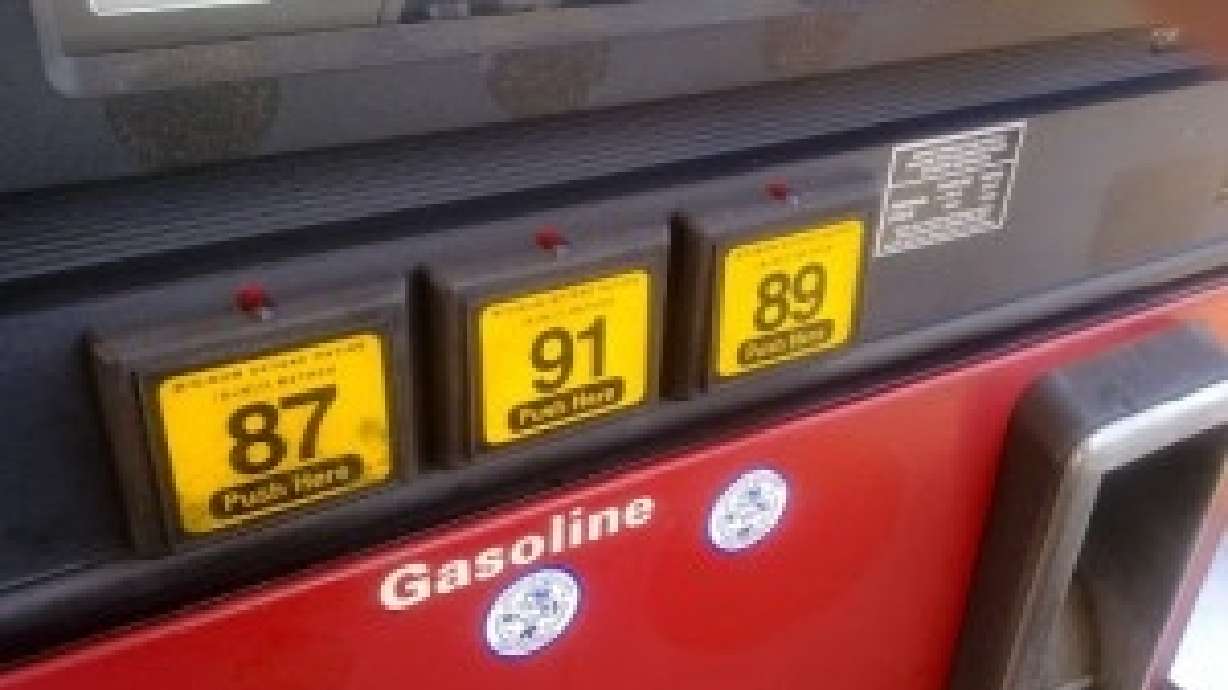Estimated read time: 4-5 minutes
This archived news story is available only for your personal, non-commercial use. Information in the story may be outdated or superseded by additional information. Reading or replaying the story in its archived form does not constitute a republication of the story.
SALT LAKE CITY -- Deciding what grade of gas to buy is something that most of us do several times per month. Mistakenly, though, choosing to spend more for premium or "mid-grade" gas is most often a complete waste of money. As gas prices spiral upward, it is increasingly important to squeeze every cent available out of our gas budget.
The singular difference between premium and regular is a characteristic of the gas called “octane.” This characteristic is modified using certain additives. The gas is then classified as regular ("87" octane at our altitude of over 4,000 feet above sea level) or premium ("91" octane at our altitude).
To be clear, this octane isn’t an actual substance, in this case. An analogy might be something like “redness” — i.e., the level of the paint’s redness could theorectically be described as an 87 or a 91. Several substances combine to make the paint red, such as various chemicals, etc. Overall, however, the paint continues to work the same way, it just looks a bit "redder" at a 91.
In the case of octane, there is one and only one benefit: The higher the octane, the less susceptible the gas is to ignition. That's right, a higher octane makes it more difficult to burn.
In the case of octane, there is one and only one benefit: The higher the octane, the less susceptible the gas is to ignition. That’s right, a higher octane makes it more difficult to burn.
Now, why is that better? In most high-performance engines, the compression ratio is higher. This means that the piston squeezes the air more, or longer, than in a low- compression engine. All else equal, a high-compression engine makes more power than a low-compression engine. The higher octane gas allows the engine to compress the fuel air mixture more, without having it spontaneously combust (known as premature ignition, detonation or knocking) before it can be (and should be) ignited with the spark plug.
So if your engine is not a high-compression engine, does it help at all to use premium? Absolutely not. In a Car and Driver study, reseasrchers actually found little or no difference when premium fuel was used in a car that didn’t require it. No improvement at all. In the test case of a Honda Accord, the performance actually decreased.
Now, there are some cars that require premium. If you drive a luxury make or sports car (Acura, Audi, BMW, Corvette, Viper, Infiniti, Lexus, Mercedes, etc.), the odds are that it requires premium. In some cases it is actually required; in others, it is merely “recommended.”
So what happens if you run regular in a car that requires premium? Generally, nothing, as most cars are sophisticated enough to make adjustments to prevent damage. These adjustments, however, will almost always come at some expense of power and performance. In the Car and Driver study, they saw performance drops from 6 percent - 10 percent in cars designed for premium but using regular. In a worst-case scenario, however, the engine can experience premature ignition (detonation or knocking), which can seriously damage and even destroy an engine.
#poll
Altitude was mentioned earlier, and you might have wondered what that has to do with octane. If you travel to areas at lower altitude — say, California — you’ll notice that the octane of regular gas for sale is 89 and premium is 93 (two points higher than here in Utah). This is because at sea level, the air is more dense and takes up more space than air at higher altitudes, thus requiring a higher octane to avoid the aforementioned problems.
Some cars can utilize even higher octanes. My BMW’s owner manual discusses using fuel of up to 98 octane with increasing benefit. Some street cars with modifications and “tuner chips” can be configured to make use of racing-type fuel that has an octane measurement of well over 100. From personal experience, our GMC Denali has a pretty "hot" engine (it is a version of the ‘Vette engine). The owner's manual recommends premium, but since it drinks gas at about 10 MPG we decided to just use regular. The difference was dramatic. My wife, who was unaware of my switch, asked if something was wrong and asked if the brakes were on. It was a noticeable enough difference that we went back to premium.
Also, the term “premium” tends to make us think that the gas is somehow better. All gas grades have the same quality and level of extra additives (i.e. detergents, Techron, etc.). In the paint analogy above, the same base paint quality is used, just more “red” is added to one of them. It also bears mentioning that mid-grade (usually 89 at our altitude or 91 at sea level) is almost always a complete waste of money. Either your car needs premium or it doesn’t, there is no in-between.
Another small item: When purchasing gas for your lawnmower, snow blowers, etc., always buy regular, as the last thing you want with them is to have a gas that is more difficult to ignite.
You can thank us next time you save some money at the pump. The Diet Coke is on us.
Russ and Steve are "The Guys That Know." We're that friend who knows almost everything. Visit us at www.guysthatknow.com.









